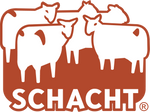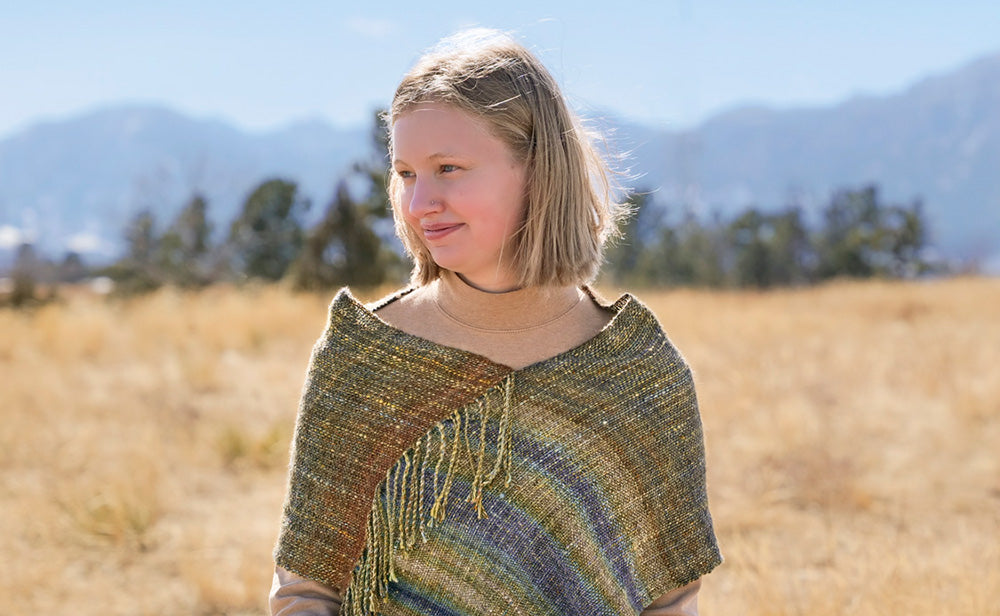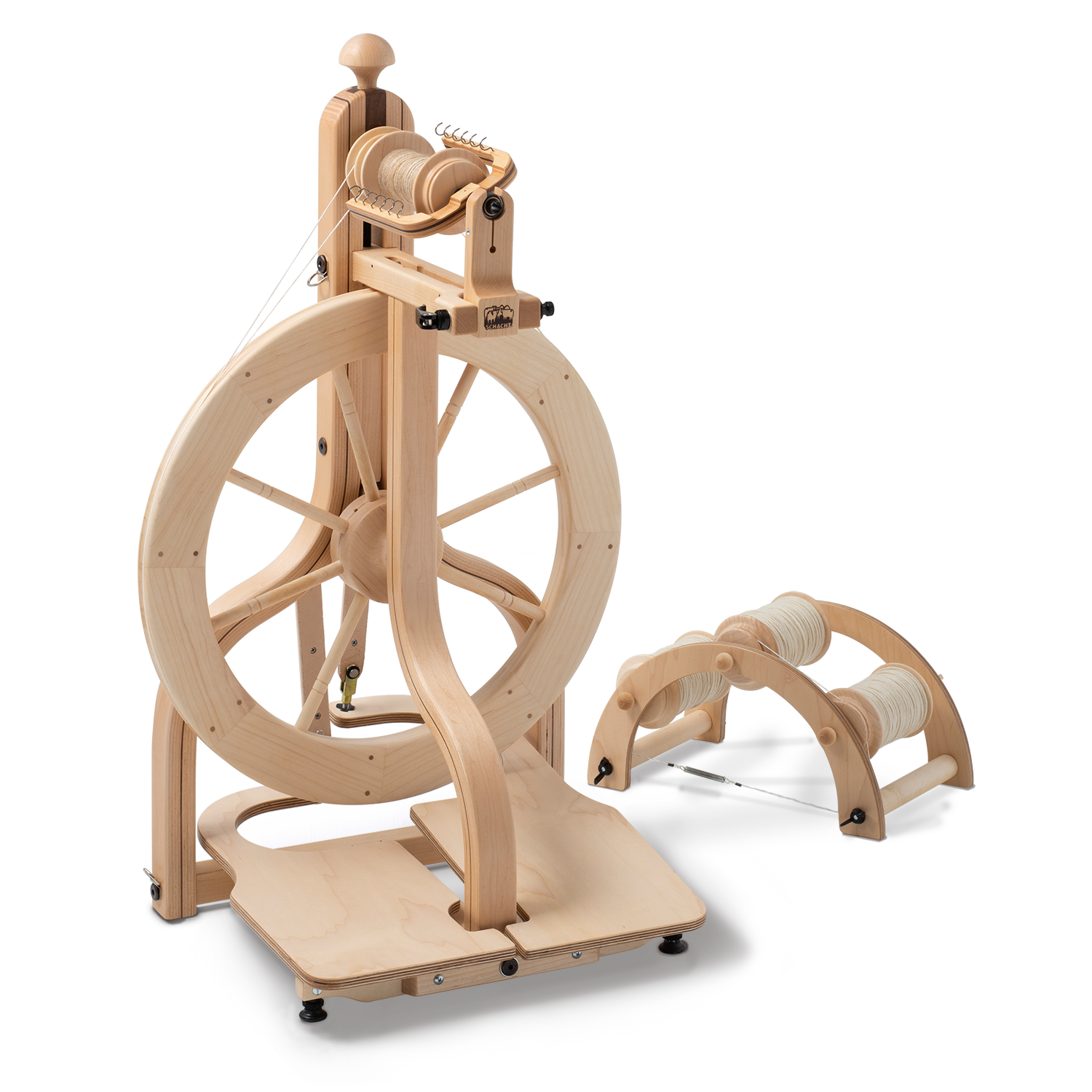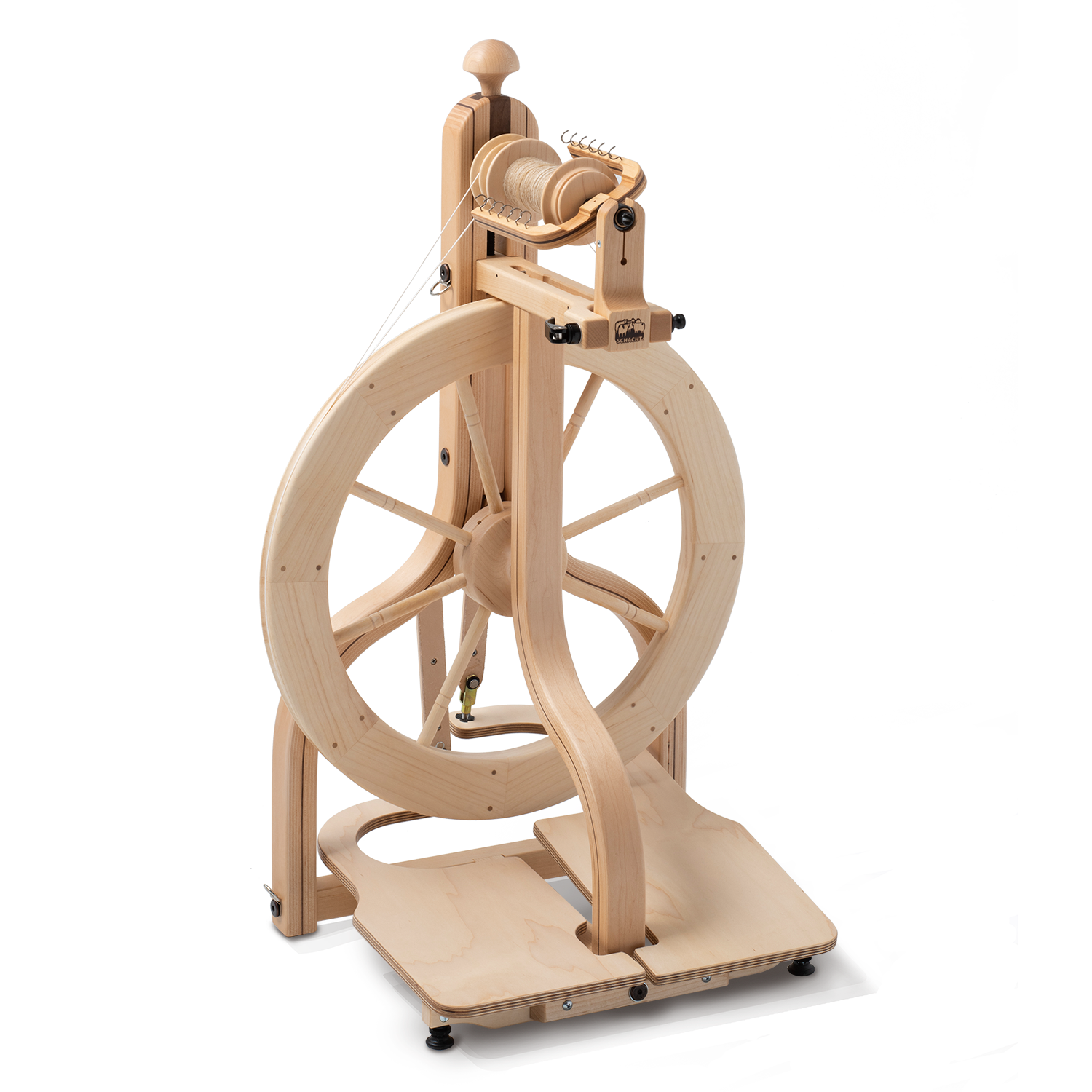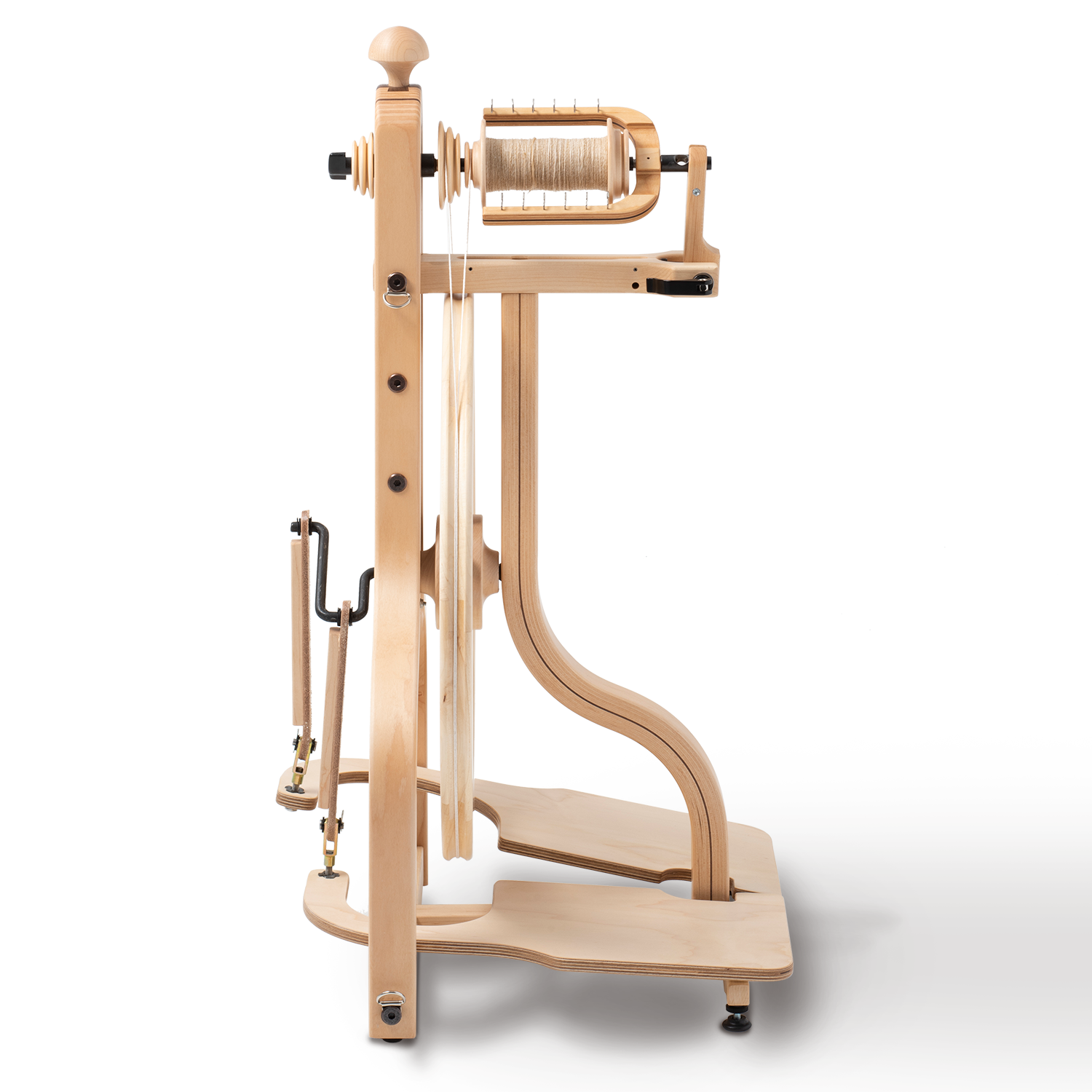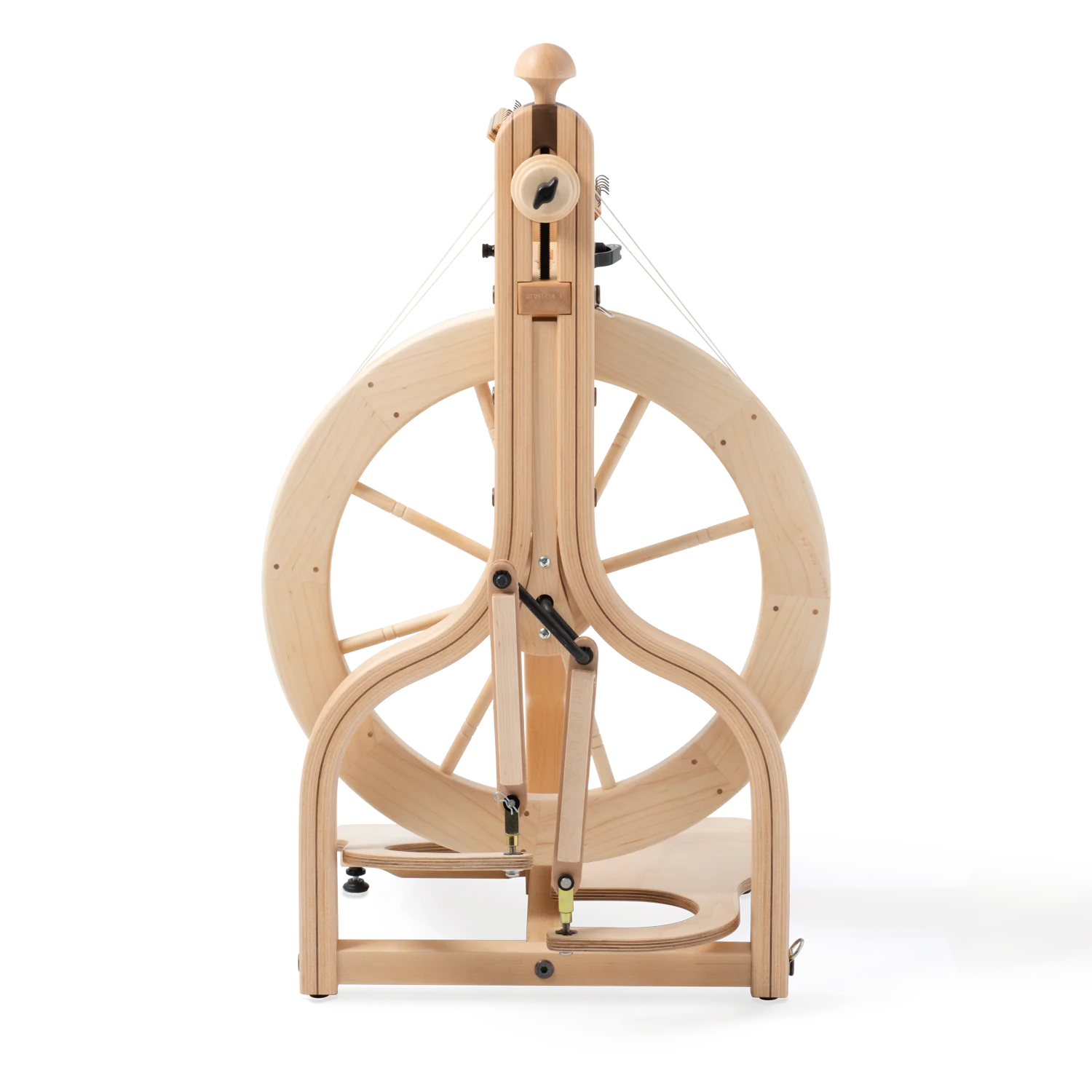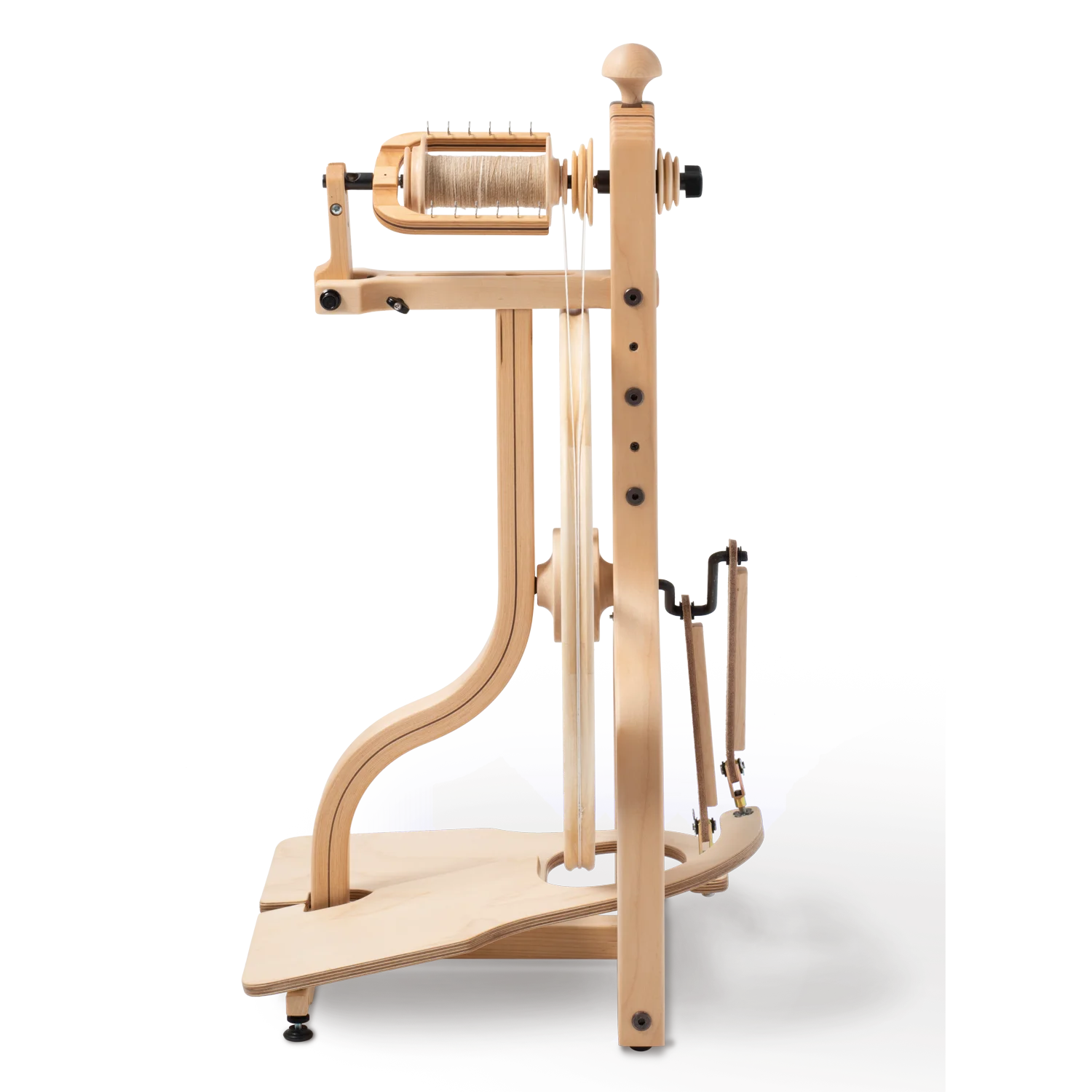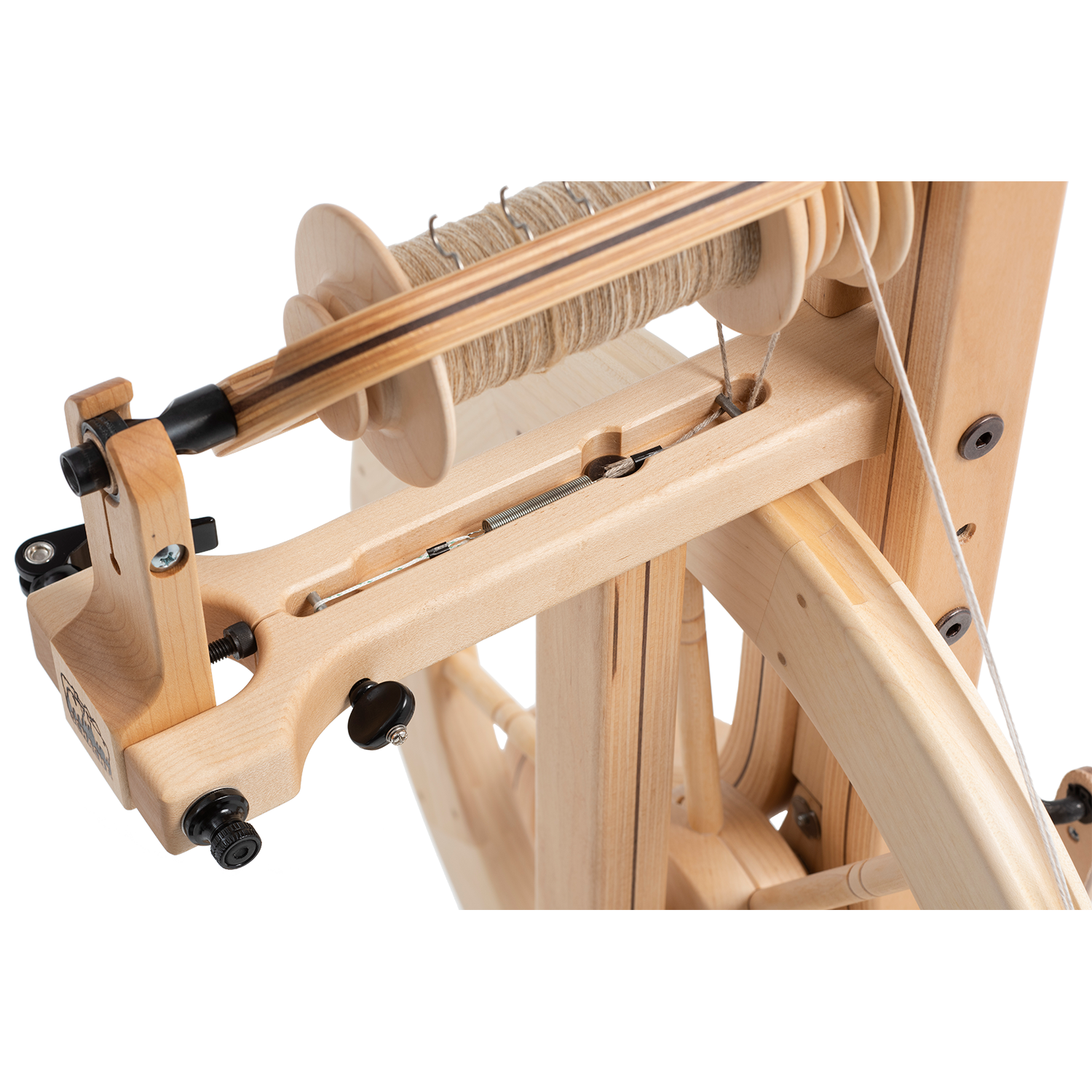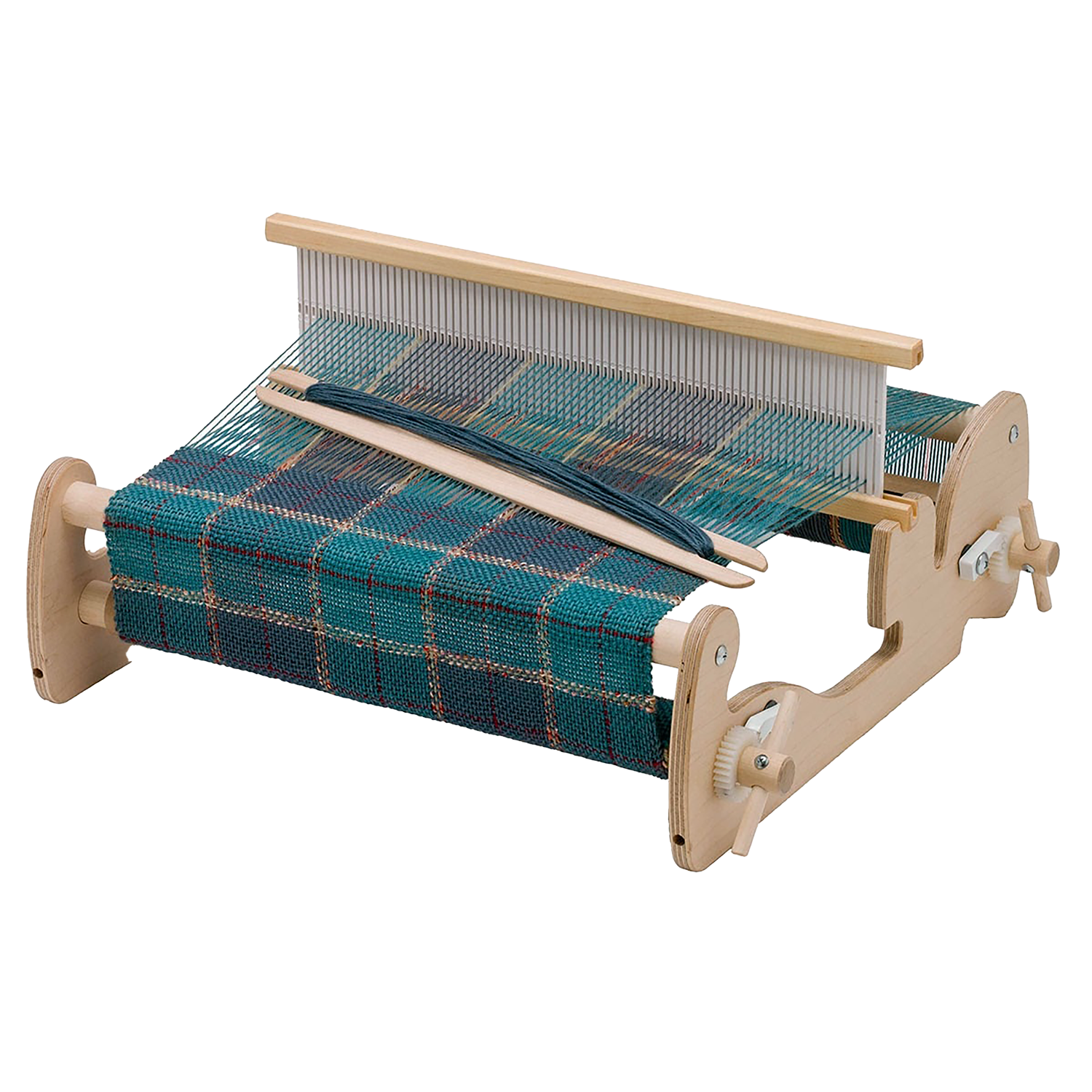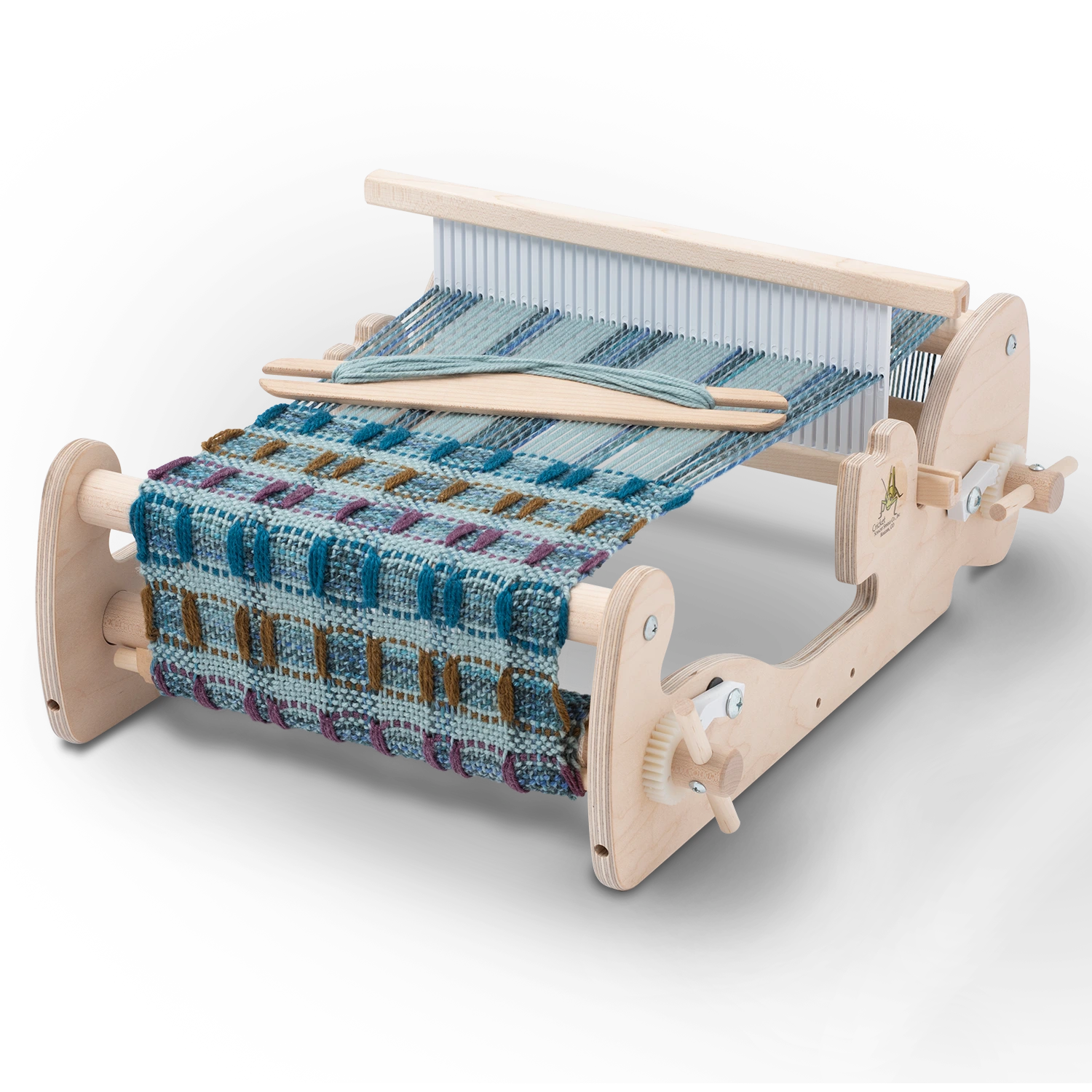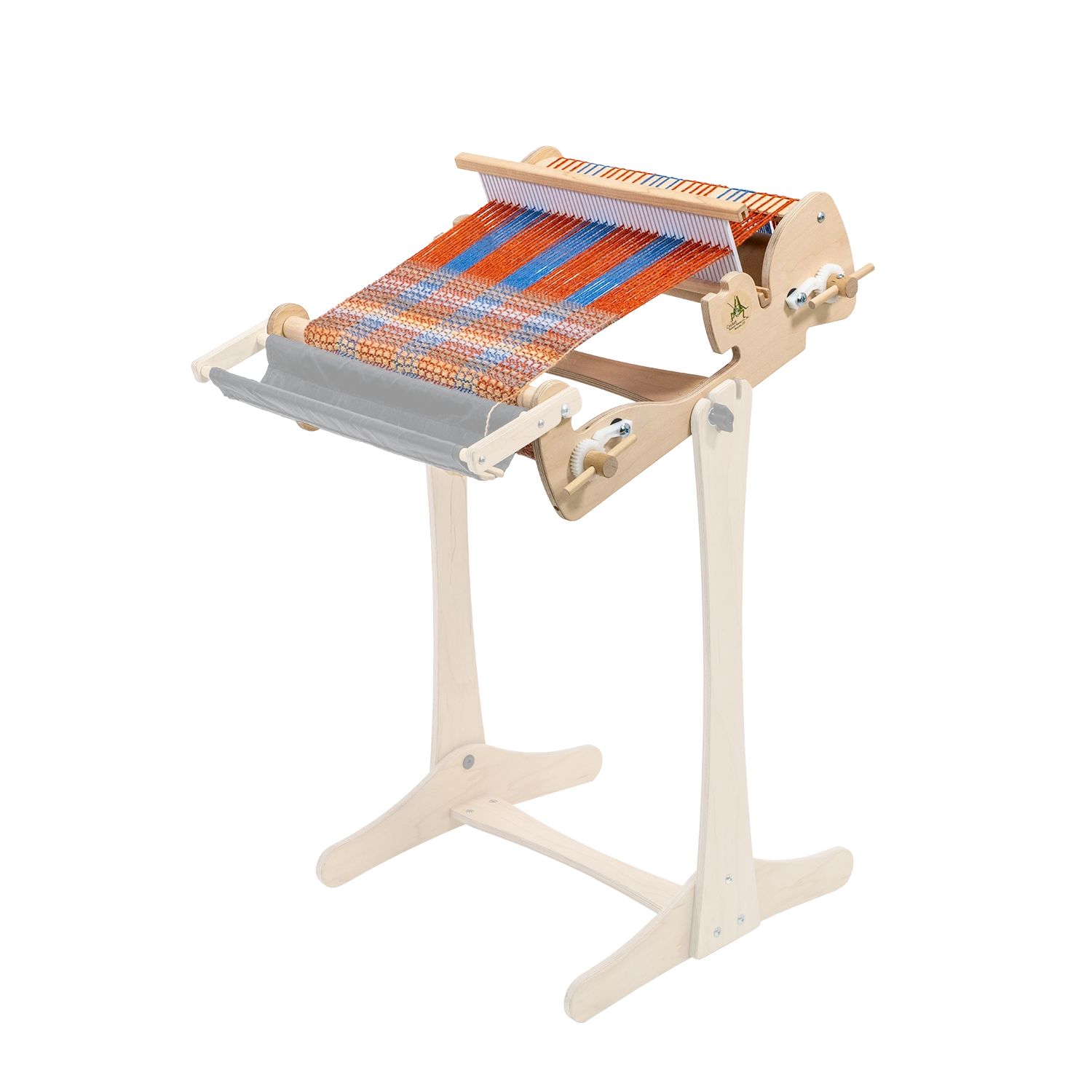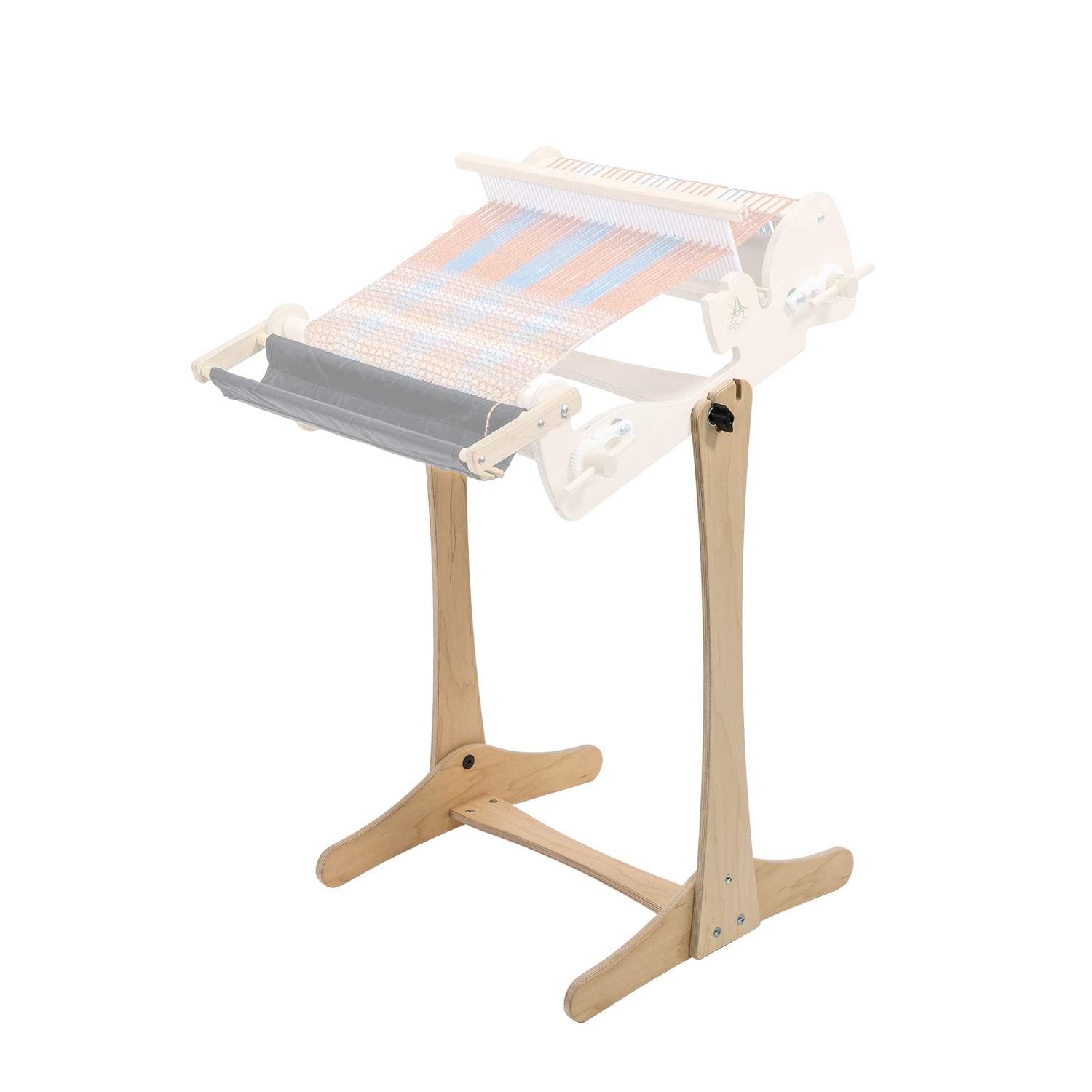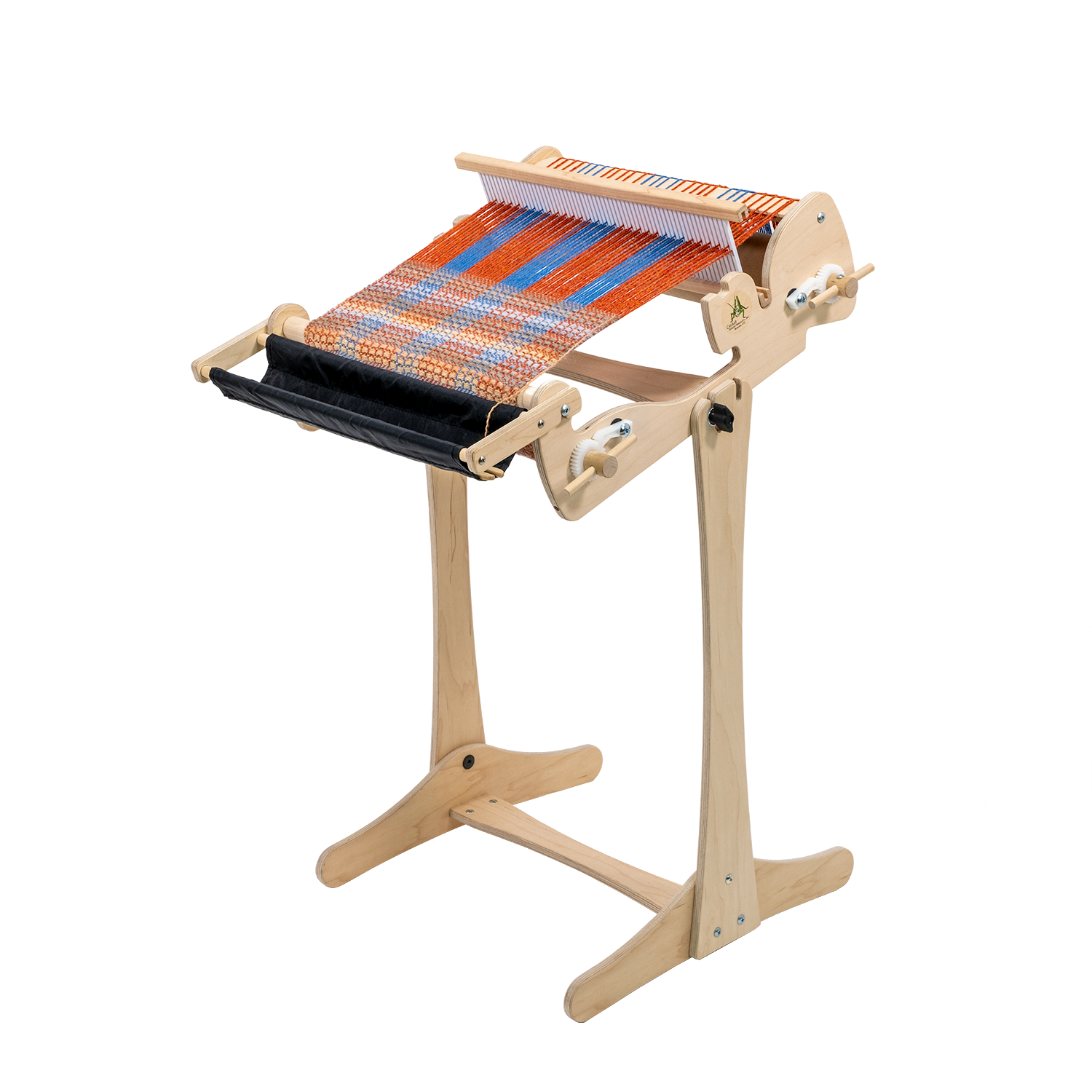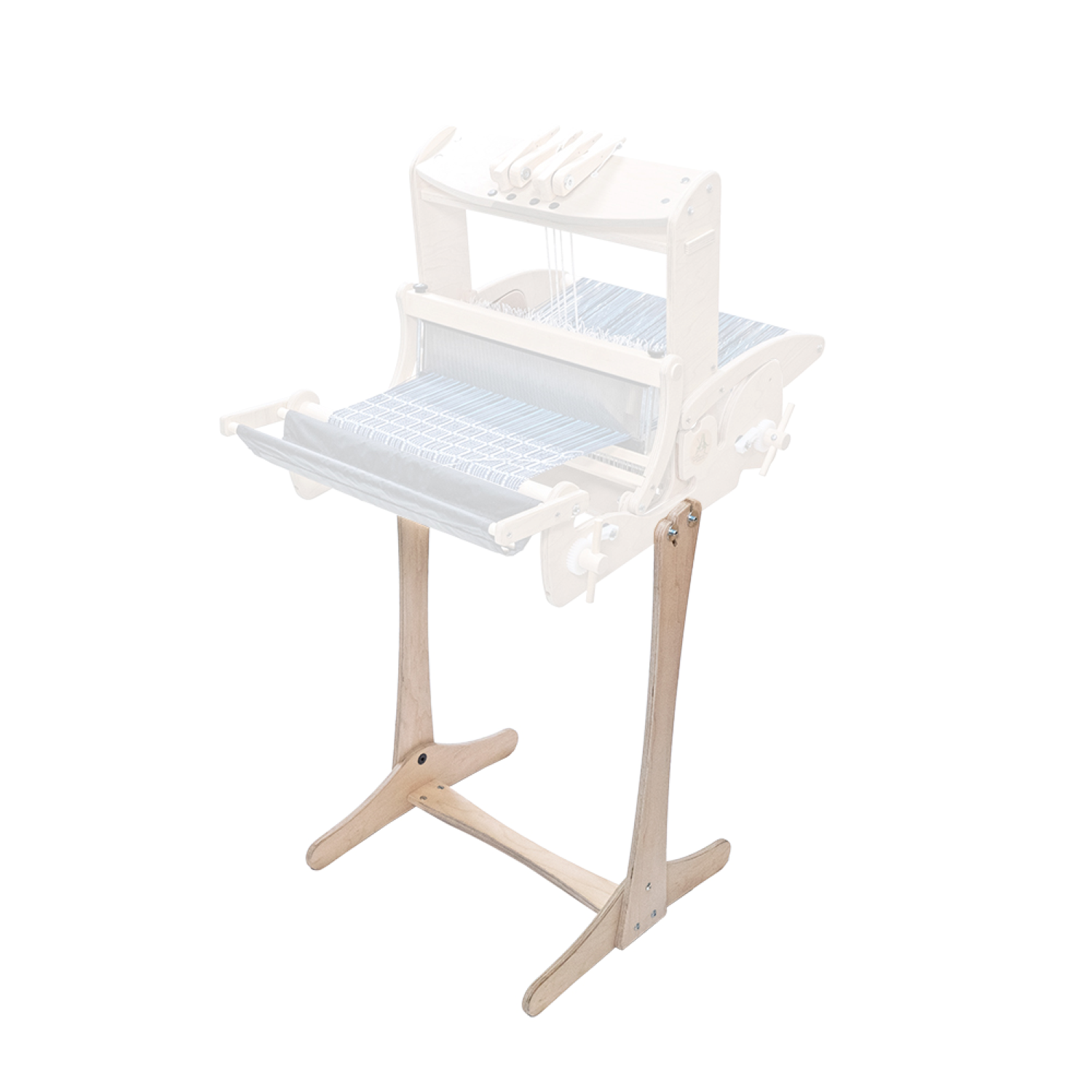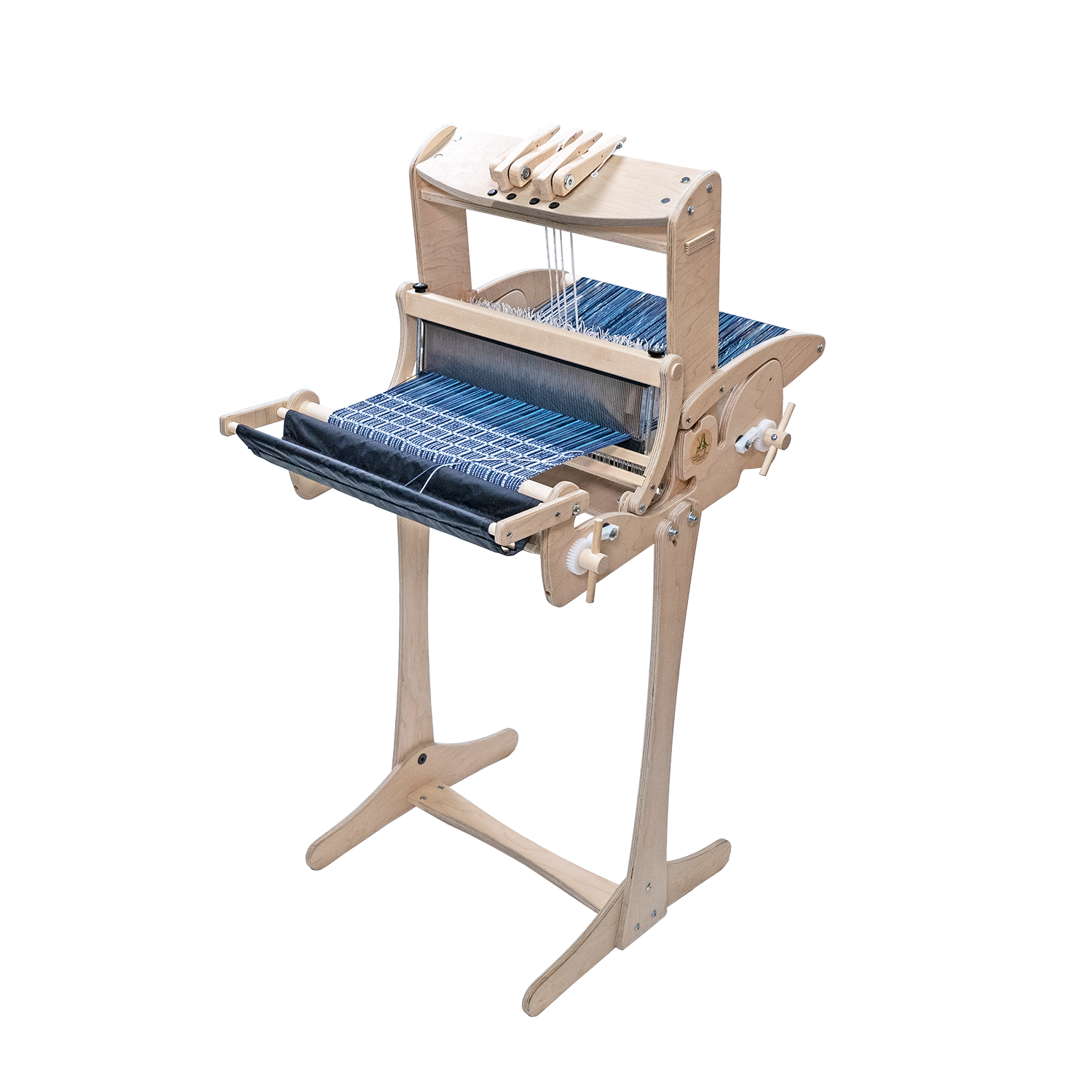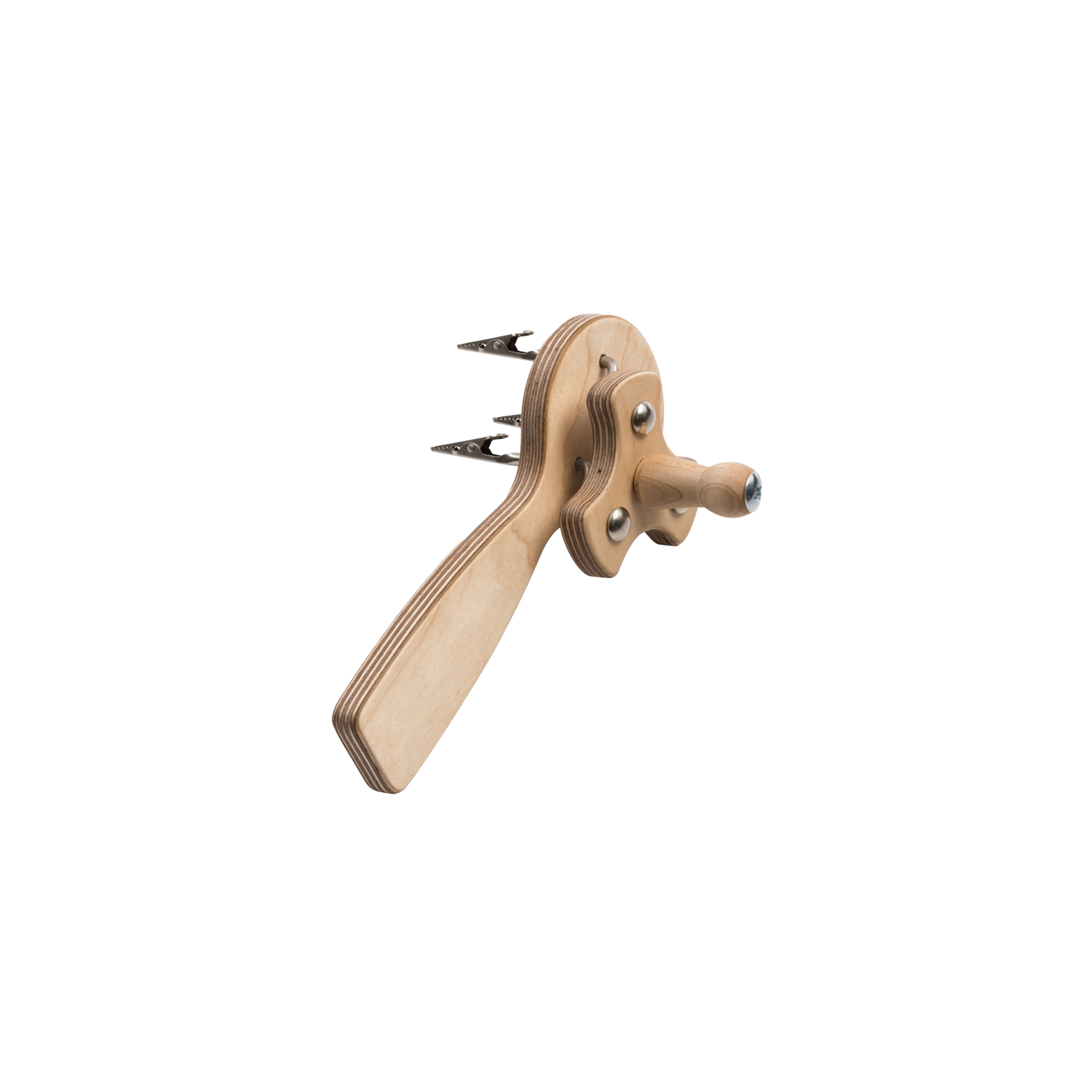Handspun Collective Ponchette
Designed and woven by Mackenzie Keller, Stephanie Flynn Sokolov, and Sienna Bosch
Spun by Deb Gerish
Weaving with your handspun yarn is simple and rewarding. To illustrate the possibilities of weaving with handspun yarn to experienced spinners at SOAR, a spinning conference, we warped all of our small looms with yarn spun by our Projects Manager, Deb Gerish. For the event, we featured beautiful hand dyed colorways from Greenwood Fibers. The yak and silk blend from Greenwood fibers was so luxurious it was a staff favorite to spin.
The lighter hues in the Blue Eyes colorway matched the fall season when we warped the loom. By the time we finished with the darker Outlaw colorway, our weaving reflected the quiet season of winter. We decided to stitch both ends together in the front of the piece to ensure the different colorways are on full display. Our finished project is a comfortable reminder of the joys collaborating together as spinners and weavers.
We all look back on this collaborative project fondly, and each of us has a special memory attached to it. Deb would stop to pet her yarn every time she walked past the loom. Stephanie and Mackenzie remember how amusing learning to warp can be, as this was Mackenzie's first time using a rigid heddle loom. Mackenzie and Sienna wove a few inches at the end of their workdays—they appreciated the time to unwind. Sienna enjoyed the final steps, where she remembered all the care that we put into the project. It was a labor of love, shared by all four of us. Now we just have to decide who keeps the finished ponchette!
Project Specs
Weave structure: plain weave
Finished size: 46" x 13" (weaving off the loom, excluding fringe)
Width in reed: 14"
Total warp ends: 112
Warp length: 70"
EPI: 8
PPI: 10
Note: If you want to weave but not spin, use fingering weight commercial yarn at the same sett. If you want a ponchette similar to ours, Greenwood Fibers sells yarns in the Outlaw and Blue Eyes colorways we used for weft. For similar warp colors, consider these colorways from Greenwood Fibers:
- Emerald Variegated
- Tribe
- Mallard
- Peridot Speckled
- Aquamarine
If you want sparkles or bits of black, check out the base yarns Star Dust (silver), Gold Dust (gold), or Zippy (black). While all Greenwood Fibers yarns will feel great against the skin, you'll get ultimate luxury with Yakity Yak, Cashmere Delight, or Sublime bases.
What You'll Need
- Warp: 250 yards handspun singles, about 14 wpi and 1400 ypp, spun from a 4.16 ounce "wild" batt from Inglenook Fibers. Colors were greens, golds, and blues.
- Weft: 350 yards handspun singles, about 16 wpi and 1150 ypp, spun from two 4-ounce braids of 50/50 yak and silk in colorways Blue Eyes (greens, grays, and blues) and Outlaw (browns, blues, and bronze) from Greenwood Fibers. See note below about substituting commercial yarns.
- Matchless spinning wheel
-
rigid heddle loom at least 15" wide— we used a 15" Cricket on a Cricket Stand
- 8 dent rigid heddle
- stick shuttle
- sewing pins or clips
- tapestry needle for hemstitching and assembly
- fringe twister (optional but recommended)
- rotary cutter and mat (optional but recommended)
Materials
Equipment
Directions
Spinning
Deb spun the warp yarn many years ago and didn't take complete notes. The wild batt came from Inglenook Fibers. She spun a Z-twist singles on a Matchless in double drive, probably using the small groove on the medium whorl.
The yak and silk braids were also spun as Z-twist singles on a Matchless, set up with the medium whorl in Scotch tension. She used low take-up for lots of twist.
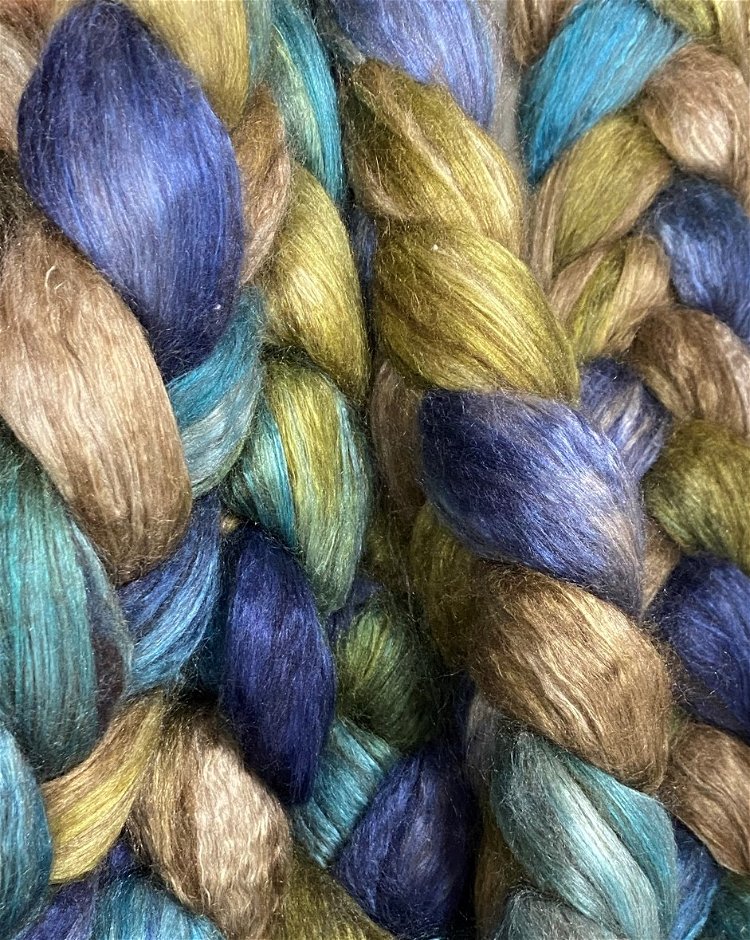
Warping
Wind a 70" warp chain of 112 ends, then warp the loom, centering the warp in the rigid heddle. Or direct-warp with the warping peg positioned 70" away from the apron bar, centering 112 ends in the rigid heddle. If you plan to weave a longer fabric, adjust the warp length to allow 18" of loom waste. Fringe is made from loom waste.
Weaving
Weave a header to spread the warp.
- Wind a stick shuttle with your first colorway. (We used Blue Eyes for 12", then switched to Outlaw.)
- Weave about an inch. Hemstitch in groups of 2 warps and 2 wefts.
- Continue weaving in plain weave. When you rewind the shuttle, take care to finish winding at a color similar to your most recent pick. Use as many colors as you wish.
- When the weaving reaches 46" (measured under tension) or your desired length, hemstitch the end.
- Cut your weaving off the loom, leaving at least 8" of warp on the fabric for fringe.
Finishing
Wash the weaving in room-temperature water with gentle soap. Lay flat to dry.
- Twist the fringe in groups of 4 ends (2 hemstitching groups). Tie an overhand knot at 4-1/2". Trim the ends 1/2" past the knot with a rotary cutter.
- Twist the fringe and trim the ends on the other side.
- Pin or clip one end of the weaving at a 90-degree angle to the other end, as shown in the diagram.
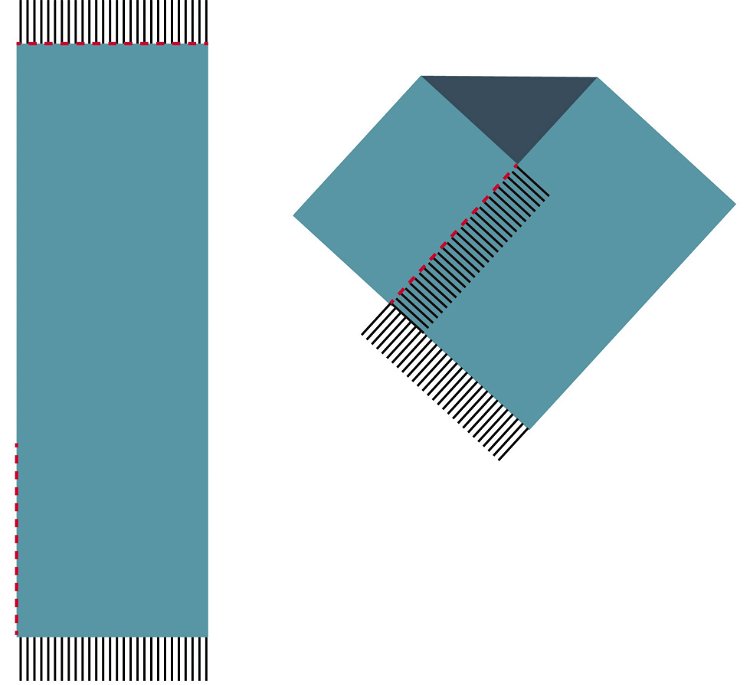
- Whipstitch pinned edges together.
